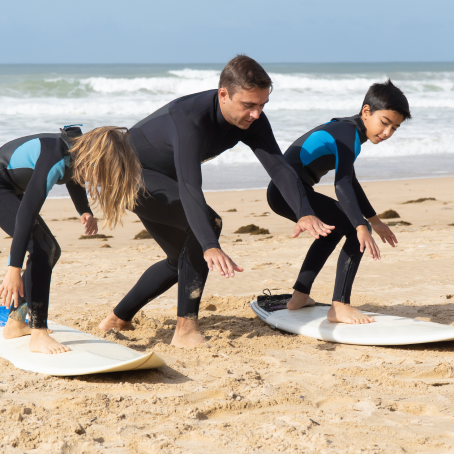Water sports include a broad range of recreational pursuits pursued by many at home in the UK or abroad. These include:
- Sailing
- Canoeing and kayaking
- White water rafting
- Jet skiing
- Rowing
- Speed boating
- Water skiing
- Surfing and windsurfing
Whilst these sports can be great fun, accidents do happen and often as a result of negligence. Indeed, water-related fatalities are the second leading cause of accidental death in the UK, many unsurprisingly due to drowning.
We consider some issues and examples below:
Surfing:
Surfing can be both great fun, testing your abilities against the power of the sea but can also be incredibly dangerous. Injuries can typically include those sustained in collisions with rocks, other surfers or the surfer’s own board.
To guard against these injuries, it’s important to protect yourself. You can do this by avoiding surfing conditions and locations that require ability beyond your own. You should also complete adequate training as well as use all appropriate personal protective equipment such as helmets, inflatable life-vests and protective eyewear. On top of this, you should ensure you use your common sense while out on the water.
Kayaking & Rafting:
Kayaking and rafting at sea or on the river can be adrenaline-pumping activities. Because of the dangers associated with it, it’s important to protect yourself and others.
The two activities require intense concentration and an ability to read and predict water conditions. You’ll also need a good level of stamina and physical strength.
Depending on the conditions you come up against (e.g. class 3 – 5 rapids), your body is likely to take a beating.
In the event of a capsize, impact with rocks and other objects can result in serious injuries including loss of consciousness with the associated serious risk of drowning. If you hit a rock or rapid at high speed, you risk serious head injury and or spinal injuries.
To reduce risks, you should only tackle dangerous water with
- The appropriate equipment including PPE
- The appropriate level of experience and skills, both for yourself and colleagues
If you engage in organised kayaking, canoeing or rafting expeditions, do so only with suitably licensed and experienced organisations. Gorvins‘ Partner and head of department, Gary Boyd is a very keen kayaker and was shocked to find on a kayaking trip on the Ardeche that the firm that provided the rudimentary equipment had minimal PPE, including a lack of properly maintained helmets and no throw lines (used to recover capsized kayakers). Perhaps more amazingly, they provided kayaks (and the same lack of PPE) to those aged 7 and up.
Water-skiing:
Since water skiing requires your feet to be bound to the skis, the most commonly reported injuries tend to be ankle related. Depending on the speed in which you’re travelling, and the direction in which you fall when you lose your balance, this places a lot of pressure on your ankles to move in one direction while your body moves in another. Ankle sprains, ankle fractures, osteochondral lesions of the talus and Achilles tendon ruptures are some of the most common injuries you can suffer as a result.
Similar to surfing, water-skiing can involve substantial trauma through impact with the water, skis, boats, and rocks. As with all water sports, there is also the risk of drowning. Because there is a non-negligible risk of catastrophic injury or death, you should take extra care with these activities.
Prevention relies on being sensible on the water and following safety guidelines. Avoid travelling at speeds you can’t handle and watch out for windy and choppy conditions. Don’t water-ski until you’ve had appropriate training and ensure you use appropriate, well-maintained PPE.
Pleasure boating:
It is important only to travel with reputable, appropriately licensed companies both in the UK and abroad. These companies should provide appropriate PPE such as life jackets and other buoyancy aids.
Gorvins’ own Gary Boyd had a life-threatening experience one recent New Year’s Eve when travelling the short distance from Ballycastle (N.Ireland) to Rathlin Island on a powered R.I.B.( reinforced inflatable boat). Having been assured by the pilot that despite the weather conditions, all would be safe, it became clear that the sea conditions were much worse than predicted, forcing the pilot to exhaust his energies and employ all his nautical skills to complete the short crossing.
Pleasure boating accidents occur both at sea and on fresh water. In November 2018, a boat capsized on Lake Victoria in Uganda, leading to the tragic loss of 33 lives. As with any activity on the water, due diligence and proper safety protocols can protect you and your loved ones from disaster.
The cause of most injuries
In our experience, the causes of accidents often include issues like the following
- Defective or poorly maintained equipment
- Lack of suitable PPE
- Inadequate training and supervision
- Negligence of other participants
- Lack of adequate safety standards and procedures on the part of organisers
- Collisions/ capsizing of boats or other craft
- Speed limits not observed
- Alcohol consumption
- Running out of fuel on powered crafts
How Gorvins can help you pursue a claim
We’ve successfully pursued claims for clients who have sustained injuries through water sports and boating accidents, including serious injuries to the head and spinal cord.
The personal injury team at Gorvins have the necessary experience, in-depth knowledge of water sports and necessary contacts with other professionals to successfully pursue injury claims arising out of water activities. Gary Boyd, our Head of Sports Injury is himself a keen participant in water sports, particularly kayaking.
To obtain the highest compensation settlement for you, we’ll fully capture the severity of your injuries and their consequences. We’ll carefully detail any loss of earnings, medical costs, and any other expenses while presenting a case that highlights the full effects the injuries have had on your life and the life of your loved ones.
–
If you would like to discuss or make a claim, please call us on 0161 930 5117 or send your enquiry to our team via the online contact form.

